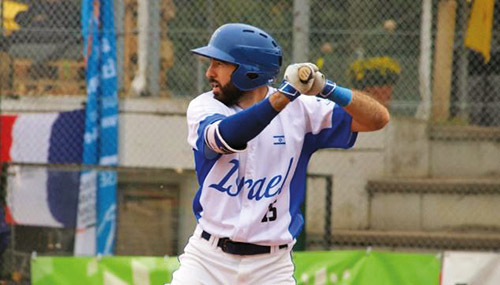

Fans think that professional baseball players in the minor leagues are living the dream! But it isn’t that simple.
The average baseball fan is unaware of the challenges minor league players face. A minor leaguer can play for five to six years before receiving a chance to play for a major league team, during which time he can earn as little as $3,000 for his five-month season. Even after playing those five to six years, only 10% of minor leaguers end up making it to the show.
Jeremy Wolf knows these challenges all too well. Wolf was drafted by the New York Mets in 2016 in the 31st round, and made about $4,500 a year, about $45-$75 per game.
While recovering from a back injury in 2017—as a result of a slide into second base—and still unable to get out of bed, Wolf was released by the Mets. But he knew he was lucky: He had a college degree to help him find a job after baseball.
However, he was also aware that there were many minor league players being released who did not have a college degree, and no roadmap to a career post-baseball.
This realization inspired him and Slade Heathcott, who played 10 years in the minor leagues and two years in the major leagues with the New York Yankees, to found More Than Baseball, a nonprofit organization that helps ballplayers live a better life during and after their careers. The organization is partnering with current and former baseball players to assist minor leaguers off the field, so they can focus on their personal and professional development on the field.
The problem for minor leaguers is trying to develop their baseball skills while at the same time focusing on their shaky financial situation. Wolf said minor league players play better when they are well-rested and less hungry, making them happier and increasing their confidence when they are less stressed about their financial situation.
“Your body hurts because you slept on an air mattress in the kitchen of an apartment with eight other guys,” says Wolf, “and you had to walk to the field to go play professional baseball when the batboy and hot dog vendor will make more than you that day.”
More Than Baseball has multiple programs to aid players coping with their minor league lifestyle and to prepare them for life after baseball. Assistance for the active player includes providing housing, food, equipment, mental health guidance and nutrition coaching. For their post-baseball career, More Than Baseball provides personal branding assistance, English classes and job interview training, and assists players with obtaining their high school diplomas or GED.
More Than Baseball stresses the value of minor leaguers beyond their playing skills. Off the field, minor league players are a valuable asset to the community in which they play, with the organization running baseball camps to bring minor leaguers directly into those communities. The players are able to earn up to half of what they make during a season by participating in one baseball camp.
“Minor league baseball is not set up for these players to succeed,” Wolf said, but he succeeded in gaining support from most major league teams, Major League Baseball and the MLB players association by proving that “minor league baseball is important to professional baseball.”
Wolf is also using his baseball experience and expertise as an outfielder to help Israel’s baseball team win gold at the Tokyo Olympics this summer. “I represent Jewish baseball players, represent Israel, represent kids like me growing up in a Jewish neighborhood but not having a lot of Jewish players get to the major leagues,” Wolf says. “This is my way to serve the Jewish people.”
After attaining an Israeli passport in 2018—which enabled Wolf to play for Israel in the Olympics—he lived in Israel for six months, a time he described as “one of the most amazing and enriching things I have ever done.”
On September 5, 2018, the 46th anniversary of the Munich Olympic massacre when 11 Israeli Olympians were murdered, Wolf and the Israel Baseball Team were in Germany eating a Shabbat dinner. The next day they would defeat the German baseball team during the Olympic qualifying tournament. Wolf said the team was very aware and thankful that they were able to be in Germany and proudly wear an Israeli uniform with an Israeli flag.
Wolf says, he hopes that “More Than Baseball isn’t around in five years because that means we fixed the problem.” But even if the problem isn’t solved, Wolf is loving what he does. “I am gratefully fulfilled every day because I am able to make some real changes in baseball, to make it a better place.”
In between More Than Baseball and practicing for the Olympics, you can find Wolf playing outfield for the Lake Erie Crushers in the independent Frontier Baseball League.
Danielle grew up in Teaneck and made aliyah to Jerusalem following her graduation from Rutgers University. Danielle teaches English at colleges in Jerusalem and has been involved in both formal and informal education for a variety of organizations. Danielle believes that important life skills and lessons are often not ones learned in the classroom, but can be learned from team sports.













